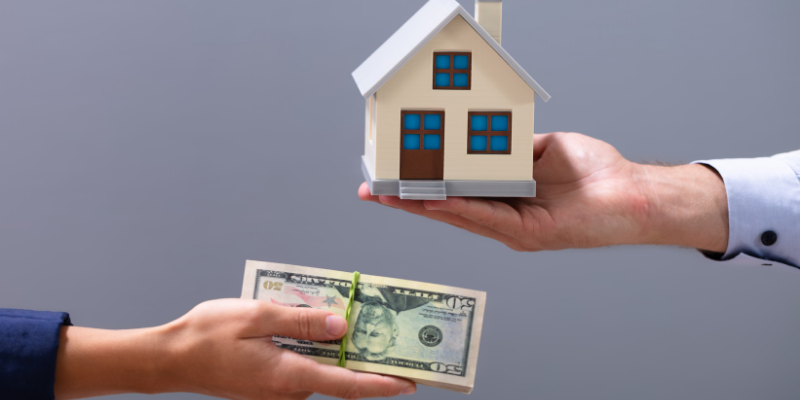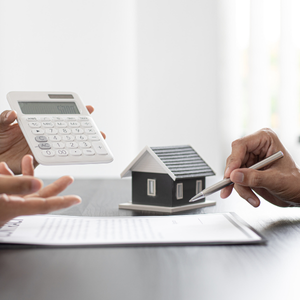
Understanding the Risks of Selling a House As-is in Florida
There are several dangers of selling a house as–is in Florida that a homeowner needs to think about. Selling a house as-is means that a person is selling a house in its current condition without making any improvements to it.
This method may make it easier to sell the house since there are people in the market looking to purchase a house at a good price. However, this may also result in a lower selling price than the owner would receive if he or she put in some repairs. This strategy in Florida might not work, as it seems like there would be a very limited market of buyers who are ready to purchase a house to flip and resell.
In the Florida real estate market, this approach could be detrimental since they are limited to cash offers. Moreover, selling a house as is means disclosing certain potential weaknesses and problems which might make some buyers walk away. The bottom line, the homeowner would lose a significant amount of money and time closing the deal which makes getting a as is deal much harder.
Market dynamics like Florida’s can be a double-edged sword. Repairs are not selling, as-is opens the house to a wider range of buyers, but in a less favorable condition, selling without repairs tends to work to a homeowner’s detriment. Yellow Card Properties helps bridge that gap by offering fair cash offers that factor in your home’s true value, even without costly fixes.
Factors That Influence Home Sale Prices in Florida’s Real Estate Market
In regard to your Florida home, selling it as-is has certain financial implications. Factors like the location, which is Florida’s coastal cities and famous urban centers, heavily dictate property value. Marketing conditions also heavily dictate value as the constantly fluctuating demand and supply have a bidirectional impact on value.
The southern phrase, ‘don’t judge a book by it’s cover’, does not apply here as the saying goes. homes which are sold as is are often met with lower offers because order buyers will see the home as a much larger financial burden due to the repairs and renovations that need to be carried out.
The selling of the home is also supported by its local economic conditions, such as interest rates and your local job market. All of these are further backed by the time of year, as the housing market varies depending on seasonal trends.
Understanding these strategies will assist homeowners who are opting for an as-is sale.
How Property Condition Affects Sale Price in Florida Homes

When selling a home in Florida as-is, the condition of the home greatly affects the selling price. As is homes, and homes in need of repair, tend to have a lower offer because the buyer estimates an additional expense.
Homes that have been well kept and are in good condition in the Florida market not only result in higher bids but also grab the attention of a large number of buyers. Spending more money on a home that needs repair could hurt the buyer both structurally and cosmetically.
Purchasing homes with outdated electrical systems and damaged plumbing tend to drive buyers away. Whereas homes that are well kept and are in good condition tend to attract buyers and get them fast.
Knowing the above would provide you with a better financial outcome while listing the home in the Florida housing market or choosing to sell your home for cash in Jacksonville or nearby cities.
Impact of Market Trends on As-is Home Sales in Florida
Trends within the market greatly influence the as-is home sales landscape in Florida, as these trends dictate the seller’s profits. During residential market booms, as-is sales have the potential to generate a plethora of offers, thus maximizing profits for sellers regardless of repairs and upgrades.
On the other hand, in a sluggish market with higher property inventory, as-is sales may result in lower bids as buyers price the home’s requisite repairs into their offers. Furthermore, intra-state differences in Florida may exacerbate these trends, with some markets experiencing rapid increases in local growth or popularity driving higher competition and demand for properties even if marketed as as-is.
For homeowners who wish to sell their property without renovations, grasping these market dynamics helps in setting realistic expectations, devising effective selling strategies, and ultimately optimally pricing the home—especially in the seasonally-driven Florida market. Also, these changes in season tend to increase active demand, offering an advantage for sellers who seek to sell quickly and without further financial investment.
Legal Considerations for Selling a House As-is in Florida
When considering an as-is sale of property in Florida, it is pertinent to know how certain legal aspects may affect the transaction. Failure to comply with state disclosure laws, which obligate sellers to reveal any known material defects that may diminish the valuation of the property, will lead to legal challenges.
Legally, sellers are not bound to any commitments regarding the maintenance of the property for repairs, upgrading fixtures, or any renovations. Regardless of the as-is condition of the property, not informing the seller of certain issues will lead to legal suspects. Aside from state laws, sellers must also comply with local laws, neighborhood ordinances, or rules imposed by the homeowners association, as they may also affect the sale.
A licensed Florida real estate attorney will assist in ensuring that state laws are complied with and all the necessary documents are properly prepared and submitted, which simplifies the process. Following this type of procedure not only helps to avoid legal actions from buyers in the future, but also fosters trust with buyers enabling the process to be as frictionless as possible.
Purchasing an as-is property comes with distinct legal hurdles that every seller must be aware of in Florida’s real estate landscape.
Financial Implications of Selling a Distressed Property in Florida
The financial impact of selling a distressed property in Florida can be considerable, especially in an as-is condition. Homeowners in Florida may find themselves choosing this option in order to evade repair and remodeling expenses in a selling highly competitive market.
Many sellers choosing this option to sell as-is will find themselves in receipt of a significantly lower offer. Such pricing tends to attract cash buyers or investors who seek to acquire distressed properties at a lower-than-market rate, making their profit by completing repairs and renovations afterward.
It is critical for sellers to account for the as-is closing costs and selling fees, as these will directly impact profit margins. Florida is known for its closing costs and fees, as well as for selling real estate in the region. Sellers must also account for any liens or legal responsibilities associated with the distressed property, which can be a considerable financial factor.
These insights can be highly beneficial if you’re looking to maximize your investment returns while selling your property in Florida’s competitive housing market—or if you’re considering a quicker option to sell your home for cash in Ponte Vedra Beach or nearby cities.
Calculating Potential Losses From an As-is Sale Compared to Renovation Costs in Florida
Understanding whether to sell a home in Florida’s real estate market as-is or after renovation comes with its considerations, more specifically, weighing the financial impact of both options. When assessing losses from selling as-is, it is crucial to understand how much lower offers are likely to be capped at compared to homes which have been strategically updated.
Most of the time, homes that are sold as-is rarely attract buyers or are offered much lower than the asking price as a result of the home being perceived as a home that requires much work for repairs and improvements. On the contrary, investing in renovations will most definitely help the home sell faster and attract better prices.
As with anything, investing in renovations comes with its own set of challenges. The most prominent one is overspending on renovations compared to the value that the home will ultimately sell for. Florida’s ever-changing real estate market does require a home seller to collect estimates on repairs and improvements.
Once a seller has all the required data, they are better off making as-is sales as compared to estimations made on as-is selling prices. Florida’s market is ever-evolving and information is key.
Evaluating the Cost-benefit of Renovations Versus Selling As-is
Florida homeowners contemplating a sale face a common dilemma: to renovate the house or sell the property as-is. An informed and rational decision can be made after assessing the Cost-Benefit Analysis of the Options.
There are significant advantages to selling as-is. Homeowners save time and money by avoiding any renovations and repairs, especially returning on investment repairs. Despite these advantages, selling as-is often results in receiving lower offers than expected, primarily because bargain shoppers are attracted to the house.
Home buyers can capitalize on the value of a strategically renovated house by accepting a greater proposition, and these renovations can boost a property’s attractiveness and market value. Homeowners need to decide whether the renovations are in line with the expected payoff while taking the current real estate trends of the state, the neighborhood, and the prevailing market in the region into consideration.
Setting renovation estimates and sale timelines in relation to targeted financial outcomes will paint a clearer picture, while estimating financial outcomes and time goals will aid homeowners in deciding whether to embark on enhancements or fully simplify the sell process by selling as-is.
Strategies to Minimize Financial Loss When Selling As-is in Florida

When selling your Florida home as-is, minimizing your financial losses should be the primary goal. High-loss damage mitigation begins with performing a thorough market analysis, ensuring that the home’s price reflects the current condition, as well as the freshly competed market.
A different angle involves highlighting the home’s potential as an investment, which may attract bidders interested in renovation, increasing the offers. This could be done in combination with leveraging online marketing and social media platforms to focus on the lot size and location that deserves the attention of real estate investors and developers, increasing the visibility of the home and enhancing the offers.
Another approach that may help increase the attractiveness of the deal without significantly impacting your net financial gain would be to negotiate flexible financial terms, eg, covering some of the closing costs or paying some of it as seller financing. To help adjust the deal in a way that your financials would not be significantly impacted, I would recommend a real estate agent knowledgeable in selling “As-is” houses to ensure a smoother and more hassle-free process.
These approaches, as well as, working with the right agents help the seller manage the expectations while at the same time ensure to increase the property’s value regardless of the ‘as-is’ condition.
Appraisal Challenges with As-is Property Sales in Florida
The foremost difficulty with the appraisal process when selling a home in Florida as-is is the appraisal process. As-is sales imply the sale of a home in its current condition with no repairs. This stance often lowers the home’s appraised value.
The appraisal process involves determining a home’s market value, which, for as-is properties, is often appraised at a lower value due to the home’s condition. This poses a challenge for sellers whose potential buyers wish to finance the purchase, especially because lenders might not approve a loan if the appraisal value is significantly lower than the expected value.
Moreover, the Florida real estate market as a whole is quite heterogeneous. As such, the value of as-is homes is not homogeneous across regions. Moreover, homes requiring extensive repairs risk leaving buyers unsatisfied, which in turn might lead to renegotiations depending on the appraisal results.
Comprehending the said appraisal challenges assists sellers in strategically pricing the home, while adjusting the financial expectations to the surroundings in Florida’s competitive housing environment.
Cost-benefit Analysis: Repair Costs Versus Selling Price Reduction
While focusing on the financial aspects of selling your home in Florida as-is, it is vital to conduct an analysis of the repair costs of selling and the selling price to project repair costs. Selling off a property as-is may reduce upfront expenses to zero, as there are no outlays for repairs and renovations.
As is often the case, the property will sell for a lower amount than a ‘normal sale’ because of repairs that must be undertaken, and buyers will factor in a selling price that mitigates the perceived risk. Florida’s competitive real estate market is known for having homes in varying conditions, and so it is necessary to grasp that reality.
Estimating repair costs for out-of-date systems and structural concerns to be fixed must be weighed against using a lower selling price. There is a threshold at which investing in property repairs improves home value, and a price that is fixed will ensure the return.
Understanding the balance between the two extremes aids in making accurate decisions on investing in the property vis-a-vis modifying to sell and sell as-is without any enhancement.
Risk Management: Mitigating Potential Liabilities in an As-is Sale in Florida
When putting a Florida home for sale on an as-is basis, understanding risk management is critical to minimizing liabilities. Homeowners should understand that “as-is” implies no repairs will be made on the house, which affects buyer interest as well as the price.
To avoid legal disputes, claiming omissions under Florida disclosure laws, all known defects must be revealed. Issues identified prior to listing the home, through a pre-listing inspection, allow sellers to control potential red flags, which reduces the chances of disputes long after the sale is made.
Regular consultation with a lawyer specializing in real estate as-is clauses will enhance a seller’s safeguards against liabilities through well crafted contracts. Also, carefully managing communications and documentation prevents needless legal disputes post-sale, since proper management of communications during the sale streamlines the negotiations and helps prevent hidden releasable surprises.
Common Mistakes to Avoid When Listing a House As-is
Listing a Florida home as-is often leads to oversights that can derail the homeowner’s financial returns. One such misstep is the as-is pricing strategy.
The pricing misconception stems from a common belief that the as-is condition justifies a discount, with the homeowner not conducting sufficient market research on the local trends. Further, basic maintenance such as lawn care is often neglected, which reduces potential curb appeal even for as-is homes.
Underpricing the property is not the only mistake homeowners make. Inadequate disclosure regarding the property’s known issues can lead to a loss of buyer trust, legal challenges, and more, which is why complete disclosure is legally imperative.
Sellers often assume no marketing is preferred; sadly, such assumptions often lead to missed opportunities, a professionally taken and strategically posted photograph can bring. More troubling, real estate agents lose homeowner clients who they deem desert for not wanting to pay commission, even when those homeowners lose the chance to get good, commission-free pricing and negotiating guidance tailored for as-is homes.
What Percentage Is Lost When Selling a House?
In Florida’s competitive housing market, many homeowners consider the costs associated with renovations when selling their home as-is. In most cases, selling as-is will reduce the sale price by 5% to 20% of its market value.
The losses incurred stem from the home purchase price, repair risk buyers take when buying a home as-is. In the fast-paced Florida market, where the value of a house solely depends on its location, these costs cannot be ignored.
There is a trade-off between selling a house as-is and doing a full renovation in terms of convenience and cash. An as-is sale will be quicker when compared to a house renovation. Analyzing sales data and working with a realtor would allow a seller to figure out the “lost price” they may be paying in as-is sales. Ultimately, they will get the best deal with the home sale by aligning their sale strategy with their financial goals.
What Are the Pros and Cons of Selling Your Home As-is?
Florida homeowners considering an as-is sale should be aware that it may significantly impact their finances and tax ramifications. An upper hand in an as-is sale is a potential quick sale, which is bound to be a benefit during competitive markets.
When a seller lists a property as as-is, it takes time and cost burden off the seller to repair or renovate, thus saving time and finances. Renovation cost is usually expensive, but selling as-is maximizes cash flow from investors and buyers looking to purchase cash.
As much as there are advantages, there are clear as-is sale disadvantages. Properties that are as-is are deemed unattractive and are perspected to be sold on a much lower price.
Properties perceived as as-is for sale are deemed unattractive; thus, investors believe they are taking a major risk by obtaining property. To counter, they’re much less inclined to pay the asking price, and as a result, sellers are limited during negotiations as buyers claim price bands for major discovery places during repair inspection reveals.
Florida homeowners should be aware of the features and exemptions of selling as-is, and weigh out the many options there are to ease the burden of making a hasty decision.
Can You Sell a House As-is in Florida?

Indeed, you can sell a house as-is in Florida. Selling a home as-is means that no repairs or improvements will be made by the seller prior to the sale.
This approach is recommended for sellers who do not want to spend money or time on repairs or renovations before putting their Florida home on the market. There are important financial considerations to be aware of when selling a house as-is in Florida.
While the selling price may be lower than competing homes, it may attract prospective buyers seeking investment properties or homes in need of substantial renovations. Even so, the expedited sale process, coupled with lower upfront costs, makes selling a Florida home as-is a financially viable option.
Strategically, selling as-is may maintain a lower bound price to attract a certain buyer market while selling quickly. Moreover, honesty about the home’s condition and known issues can legally protect you while cultivating trust with prospective buyers. A licensed real estate professional well-versed in the Florida market would be invaluable in implementing effective marketing and pricing strategies to sell your house as-is.
Is It Better to Sell a House As-is or Fix It Up?
Evaluating the financial repercussions of selling your Florida home as is or investing in repairs is critical. For some homeowners, selling the house as is accelerates sale completion and saves on repairs. As sales have the disadvantage of a lower price, buyers will want to recover the cost of repairs.
Fixing the house before selling may be more expensive and time-consuming, but could also increase the sale price and market competitiveness, resulting in a quicker sale. In Florida, real estate market indicators, demand, and local comparables should dictate your decision.
Homes in Florida’s market may have opportunities to increase value, but selling as-is may not improve profit. Understanding the financial scenarios and pressures of each option is critical in determining sale price profitability.
Is It Harder to Sell a Home As-is?
Selling a home as-is in Florida has certain challenges, but this method can benefit certain sellers and buyers. Selling a home as-is means no repairs will be done, not even improvements.
Opting for this method can be a beacon for cash buyers and real estate investors looking for a project, but it can backfire for home sellers looking for traditional homebuyers, as they mostly prefer move-in-ready houses. The selling price and buying expectations for your home in Florida will be determined by the condition of the local real estate market.
Despite the possibility of a lower selling price, a homeowner in Florida will not have to spend upfront repair costs, and there is the possibility of the home selling faster, because buyers will always prefer lower-priced homes, even with the need for repairs.
All these prospects will surely be enticing, but sellers must remember to compare these with lessened buyer interest and slow sales compared to homes that were updated or repaired before being placed on the market.
Wondering how much you might lose selling your house as-is? While traditional buyers often expect repairs that can cost you thousands, Yellow Card Properties offers a hassle-free alternative with a fair cash offer, no repairs, no agent fees, and no closing costs, helping you avoid unnecessary losses. Contact us at (904) 539-4420 for a no-obligation offer and see how much you can actually save by selling as-is.
Helpful Florida Blogs
- Tips For Selling Your Florida Home During A Move
- Selling Your Old House In Florida’s Real Estate Market
- Sell Your Florida Home With An Existing Mortgage
- Selling a House That Needs Repairs in Florida
- Financial Impact Of Selling Your Florida Home As-is
- Sell Your Florida Home While Owing Back Payments
- Smart Strategies To Minimize Closing Costs In Florida
- Understanding Florida Inheritance Laws For Real Estate And Property Owners
- Mastering Home Sale Contingencies In Florida
- Can Heir Property Be Sold in Florida?
- How Long After an Appraisal Can You Close in Florida
- Can a Buyer Back Out After Inspection in Florida
- Selling a House in Bad Condition in Florida

| COMPARATIVE MARKET ANALYSIS | HOUSE FLIPPERS | FLIPPING | ROI | RETURNS ON INVESTMENT | RETURN ON INVESTMENT (ROI) |
| MOTIVATIONS | INFORMATION | PROFITABILITY | IBUYER | EQUITY | PROPERTY INVESTORS |
| MORTGAGE LENDERS | TITLE COMPANY | TITLE INSURANCE | TITLE COMPANIES | RENTAL PROPERTY | |
| RENTAL PROPERTIES | RENTAL INCOME | REAL ESTATE TRANSACTIONS | REAL ESTATE CONTRACT | POLICY | BOTTOM LINE |
| NET PROFIT | ATTORNEY | HOME INSPECTOR | BUDGET | TRANSPARENCY | VALUATION |
| APPRAISALS | HOMEBUYERS | HOMEOWNERSHIP | HOMEOWNERS ASSOCIATION | HOA | FSBO |
| COMPANY | WATER DAMAGE | TURNKEY | FAUCETS | TABLE OF CONTENTS | PEST |
| INSURANCE | INFESTATIONS | HOME IMPROVEMENTS | HEADACHE | FAIR MARKET VALUE | DIVORCE |
| LENDER | BANK | BANKING | TIME AND MONEY | CASH HOME BUYERS | A CASH BUYER |
| TABLE OF CONTENTS | TO A CASH | TO A CASH BUYER | BUY HOUSES FOR CASH | PROPERTY IN ITS CURRENT | AS IS IN FLORIDA |
| HOUSE ASIS IN FLORIDA |
